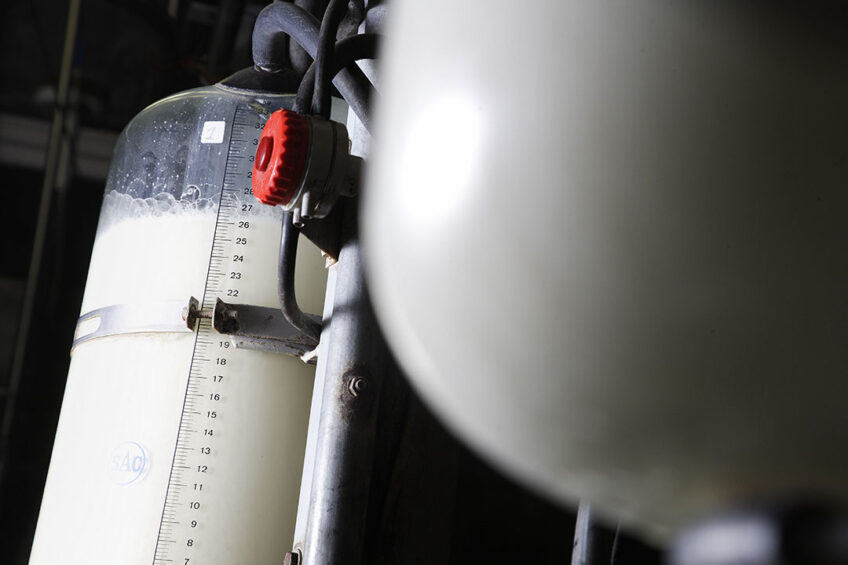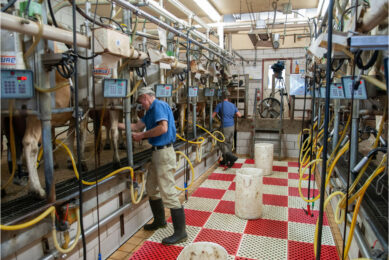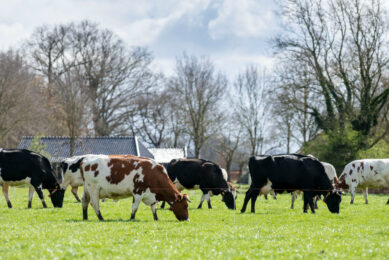India’s solutions to cut milk waste

With a view to cut down milk waste, Indian dairy cooperatives and farmers are using solar-powered cold chain solutions.
Many companies are also offering solar-powered cold storages to dairy farm cooperatives as they are operating where continuous power is an issue.
According to a joint study by the Associated Chambers of Commerce and Industry of India (Assocham) and MRSS, dairy and vegetable produce worth USD $440 billion goes to waste, due unavailability of proper cold storage facilities in rural and other parts of the country.
This waste accounts for over 40% to 50% of the total production. The report also says India can only accommodate 11% of its country’s total perishable produce. With the huge scope in the cold storage sector, many private companies are coming up with novel products.

Milk waste
Currently, India produces 165 million tonnes of milk annually and is the world’s largest producer. However, over 3% or close to 5 million tonnes of milk gets wasted due to unreliable electricity supply. To minimise the waste, milk needs to be cooled at the source in order to increase its shelf life. To provide refrigeration, milk producers have to depend on diesel generators, which makes the cooling process expensive.
Inficold is a solution – a farmer can solve this problem and install the solar-powered system to its cold storage system already installed.
Inficold has retrofittable ice storage for cooling devices, the system can be installed on any bulk milk cooler, air conditioner or cold storage. The idea is to take electricity, convert it into ice and when there is no electricity, use the ice to provide cooling.
Speaking on this, the company co-founder & CEO Nitin Goel said that both the co-founders were working in the US when they believe that they can solve the problem of refrigeration problem for perishable products.
They decided to opt for the dairy sector, as it wastes very fast. When milk is drawn, it needs to be cooled within a few hours, or else it is not saleable. Though there are bulk coolers, it is not used effectively, due to cost and other factors, Goel said.
Using solar powered cold storage
The solar-powered cooling system saves cooling costs, its cooling cost comes to 18 paisa (€0.23) per liter, as compared to bulk coolers – 50 paisa (€0.64) per liter.
It is a solution to sudden and prolonged power cuts and don’t require an off-grid solar inverter or electric batteries. The cooling system can function without any kind of electricity for up to four days. Two cold storage solutions are available – a 5,000 kg and a 10,000 kg capacity storage.
With installations in districts of Assam, Karnataka, Kerala, Maharashtra and Tripura, the company wants to sell over 2000 products in the coming few years.
And looking at the market and growing milk production, Indian cooperative and farmers would require such products that can save the milk, as well as bring additional revenue to farmers, thereby strengthening the economy.
Other solar-powered cold storages
The Indian Institute of Technology, Madras-incubated startup Tan90 has also developed a portable, solar-powered cold storage device to preserve dairy and farm produce.
Commenting on this, Satyanarayanan Seshadri, lead researcher and assistant professor at the Department of Applied Mechanics, IIT Madras said with the solar-powered cold storage dairy, vegetable and fruit, farmers can improve the quality of their products with this refrigeration system. Currently, there is a 4-6 hour gap between the depositing of produce by farmers and its collection by pickup trucks from procurement centers, which can be filled with the help of our solutions.
Ecofrost is India’s first on-farm solar-powered cold storage and Promethean Power Systems is also offering solar-powered cold storage systems in India.
Solar power is one of the best solutions for operating a small cold storage system in rural areas.
Environmental impacts
The solar-powered cooling systems are eco-friendly products that not only save milk that is wasted but also has been recognized and awarded in the Low Carbon Technology Deployment Program, an initiative by the United Nations Industrial Development Organization (UNIDO), the Bureau of Energy Efficiency (BEE) and Global Environment Facility (GEF).
Join 13,000+ subscribers
Subscribe to our newsletter to stay updated about all the need-to-know content in the dairy sector, two times a week.










